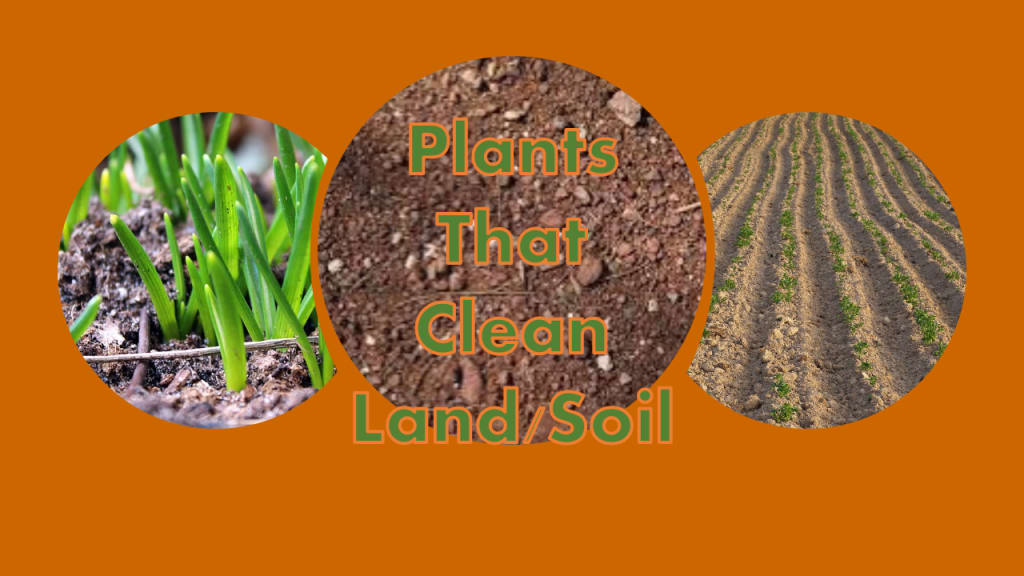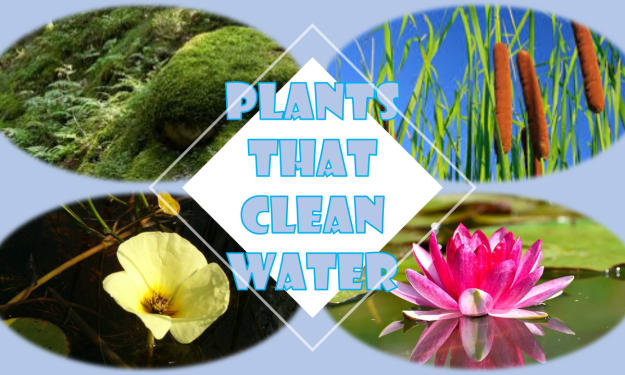Plants That Clean Land By Ma'at CC
With YouTube Video

Plants are incredibly important to the sustainability of life on Earth. They provide us with oxygen to breathe, food to eat, medicine, and so much more. Plants are also critical to the ecosystem, providing habitats and food sources for animals, helping to keep the environment in balance. Additionally, they act as natural filters, cleaning the air and water of pollutants and toxins. Plants can also help reduce the effects of climate change by absorbing carbon dioxide and releasing oxygen. In short, plants are essential to life on Earth and we should take steps to protect them.
Plants are natural air purifiers and play a vital role in cleaning the environment. They absorb harmful pollutants from the air and convert them into harmless compounds. They also help to reduce the amount of carbon dioxide in the atmosphere by taking it in during photosynthesis and releasing oxygen back into the environment. Plants can also help to reduce noise pollution by acting as sound barriers and absorbing sound waves. Furthermore, plants can help to filter water, reduce soil erosion, and absorb excess nutrients that can lead to water contamination. Overall, plants are a great way to clean the environment and keep it healthy.
An excellent way to help clean the earth is by planting plants that can absorb pollutants from the air. Some plants that are known for their air-purifying abilities are English Ivy, Spider Plants, Peace Lilies, and Bamboo Palms. Not only do these plants help clean the air, but they also help to keep the air humid and can even reduce the levels of Carbon Dioxide in the environment. Planting these plants around your home or office can help reduce the indoor air pollution. It's a great way to show your commitment to the environment and help make the world a cleaner place.
Plants remove harmful chemicals from the ground when their roots take in water and nutrients from polluted soil, streams, and groundwater. Plants can clean up chemicals as deep as their roots can grow. Tree roots grow deeper than smaller plants, so they are used to reach pollution deeper in the ground. There are many plants that are effective in cleaning land. Some of the most effective ones include sunflowers, clover, phytoremediation plants such as mustards and canola, and reed canary grass. Sunflowers help to absorb contaminants from the soil, and clover is great for improving soil fertility. Mustards and canola are known for their ability to take up heavy metals from soils, and reed canary grass is great for removing phosphorus from water bodies. All of these plants can help to clean land and keep it healthy.
Here is a List of Plants that Clean Land
1. Mustard - The Indian Mustard Plant cleans the soil by removing lead, selenium, zinc, mercury, and copper from it. This plant greatly reduces toxic accumulation in the soil.
2. Canola - The Canola Plants remove toxins from contaminated soil and clean up other toxic waste.
3. Indian Grass - The IndianGrass plant is a warm plant that grows in Spring & Summer and animals love eating it. This Plant is also a good plant for cleaning contaminated soils.
4. Hydrangeas - Hydrangeas are colorful and known for their multiple blooms on each plant, They also help remove aluminum from soil.
5. Blue Tongue - Blue Tongue looks more purple to me but it does removes aluminum from the soil.
6. Mustard Greens & 7. Collard Greens - Mustard & Collard Greens also removes lead, but do not eat if used for this purpose.
8. Water Hyssop - Water Hyssop removes lead, mercury, cadmium, and chromium bogs and wetland soils.
9.Water Hyacinth - Water Hyacinth removes toxins from soil.
Check out The YouTube Video with Narration & Pictures.
Check Out The Ma'at CC ExpressionsByCC LLC Good Vibes Shop!
About the Creator
Ma’at CC 𓁧
SelfPublished Author Artist Entrepreneurial Expressionist ♡ ✍🏾📚
www.XByCC.com ♡






Comments
There are no comments for this story
Be the first to respond and start the conversation.